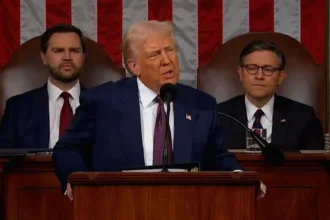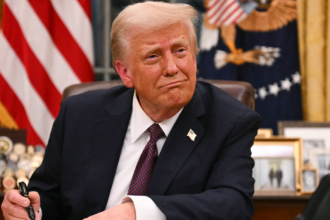President Donald Trump has once again stirred the tariff pot as he threatens to impose new tariffs against the European Union and China, setting a February 1 deadline for imposing duties.
Donald Trump told reporters at the White House a day after taking office that he intends to hit the European Union with tariffs. He added that his administration is also discussing a 10 percent punitive duty on Chinese imports because fentanyl is being sent from China to the US via Mexico and Canada.
In his remarks to the reporters, Trump highlighted that the EU and other countries also had troubling trade surpluses with the United States.
“China is an abuser, but the European Union is very, very bad to us,” he said.
“They treat us very, very badly. So they’re going to be in for tariffs. It’s the only way you’re going to get back. It’s the only way you’re going to get fairness.”
Trump’s tariff threats are nothing new, but the frequency and severity of these threats are escalating at an alarming rate. During his campaign, Trump promised to levy import taxes of 25% on Mexico and Canada, accusing them of allowing undocumented migrants and drugs to come into the US.
Trump reaffirmed his campaign promise by saying his administration is considering imposing duties on Canada and Mexico unless they clamp down on the trafficking of illegal migrants and fentanyl, including precursor chemicals from China, across their US borders.
In line with Trump’s vision to make America great again, Trump signed a broad trade memorandum on Monday, ordering federal agencies to complete comprehensive reviews of a range of trade issues by April 1.
These include analyses of persistent US trade deficits, unfair trade practices, and currency manipulation among partner countries, including China.
Trump’s memo asked for recommendations on remedies, including a “global supplemental tariff,” and changes to the $US800 ($A1276) duty-free exemption for low-value shipments often blamed for illicit imports of fentanyl precursor chemicals.
Tariffs are an important part of Trump’s economic plans. Trump believes they can boost growth, protect jobs, and raise tax revenue.
However, many trade experts, economists, and business leaders say such measures could lead to higher prices for Americans and harm companies hit by foreign retaliation. Will the Trump administration choose a path of cooperation and collaboration, or will it continue down the road of economic confrontation? Only time will tell.















